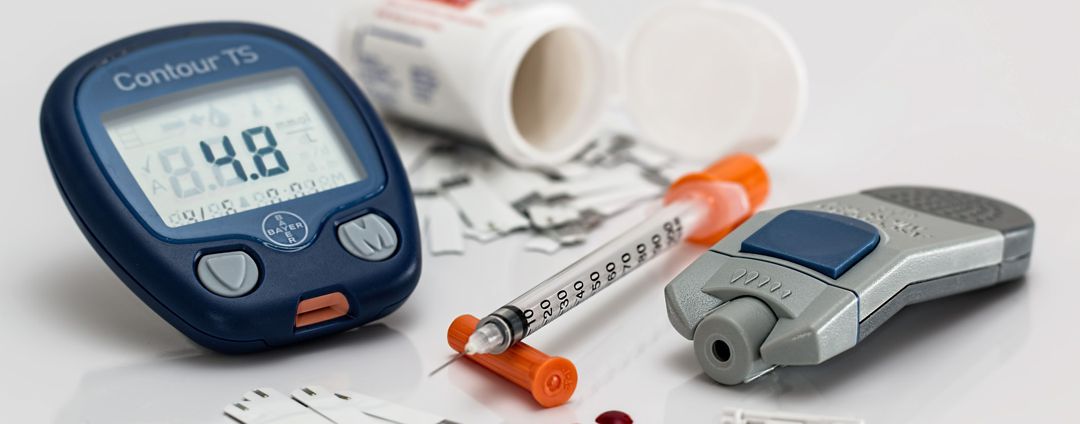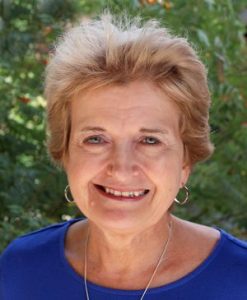Mrs. Green’s World is a platform that not only educates people about the health of the planet, but also encourages all of us to consider various options to create healthy, sustainable communities. We are proud to partner with Tucson Medical Center, which has been Tucson’s locally governed nonprofit regional hospital for more than 70 years. Because TMC is committed to empowering patients to be active partners in their care and has a robust wellness outreach program, we are sharing TMC’s message. To learn more, please listen to our special podcast series, sponsored by Tucson Medical Center.

A diabetes educator shares good news about Type 2 diabetes
 As we get older the risk of acquiring Type 2 diabetes increases. Many assume that means 65 or older but the risk actually increases at age 40, according to the Centers for Disease Control and Prevention.
As we get older the risk of acquiring Type 2 diabetes increases. Many assume that means 65 or older but the risk actually increases at age 40, according to the Centers for Disease Control and Prevention.
One in three people now have pre-diabetes and without lifestyle changes they will have a high risk of getting Type 2 Diabetes.
Nancy Klug is a certified diabetes educator at Tucson Medical Center, with more than 35 years of experience helping patients manage Type 2 and live healthy lives. She shares some valuable information about appropriate diabetes testing, and how to properly manage Type 2 diabetes.
Wouldn’t I know if I have diabetes – and is it really that serious?
The tricky part with Type 2 is that there are no, or very few, symptoms. Patients may have to get up in the middle of the night to use the restroom, be a little thirstier or more tired than usual, or have an infection that is slow to heal. If diabetes goes uncontrolled for several years, complications can develop, including kidney, nerve and eye damage. The most common complication, however, is a heart attack or a stroke.
How do I get tested?
Please see your primary care provider (PCP) or ask your PCP about diabetes testing at your annual check-up. A PCP who suspects a patient has diabetes will order an A1C test. This blood test will determine the patient’s average blood sugar levels over the last three months. A standard score will have an A1C around 4 – 6 percent. Prediabetes is 5.7 – 6.4 percent, with a diabetes diagnosis at 6.5 percent or higher.
I have been diagnosed – now what?
The American Diabetes Association (ADA) recommends patients start on a medication called metformin, but your PCP or endocrinologist can help you determine if medication is right for you.
Patients are advised to exercise for 30 minutes, five times a week, and attend diabetes education classes. The education classes are vital, because that is where patients learn how to count carbohydrates and reduce saturated fat intake to help them lose weight and lower their blood sugars. Eighty percent of patients with Type 2 diabetes are overweight, so losing even 3-5 percent of their weight can be very beneficial.
What should my blood sugar levels be?
The ADA also suggests maintaining a blood sugar range of 80 – 130 before meals, and less than 180 two hours after meals. The American College of Endocrinology has even stricter guidelines, recommending a blood sugar level of under 110 before meals, and under 140 two hours after meals. At TMC, we teach
patients both sets of guidelines, encouraging them to get into the ADA range first and then aim for the ACE range.*
Am I alone in this?
Absolutely not! There are a number of strong resources available, and the good news is we know how to control diabetes. A diabetes educator and their team can work with you and your family to establish healthy habits and a healthy lifestyle. If you’re able to keep your numbers down, you can minimize the complications and have a healthy life – there’s nothing you can’t do with Type 2.
*Please consult your primary care provider or endocrinologist to determine what blood sugar levels and medication(s) are appropriate for your Type 2 diabetes. Find out more information at http://www.diabetes.org, http://www.aace.com/college and http://www.tmcaz.com/diabetes-education.